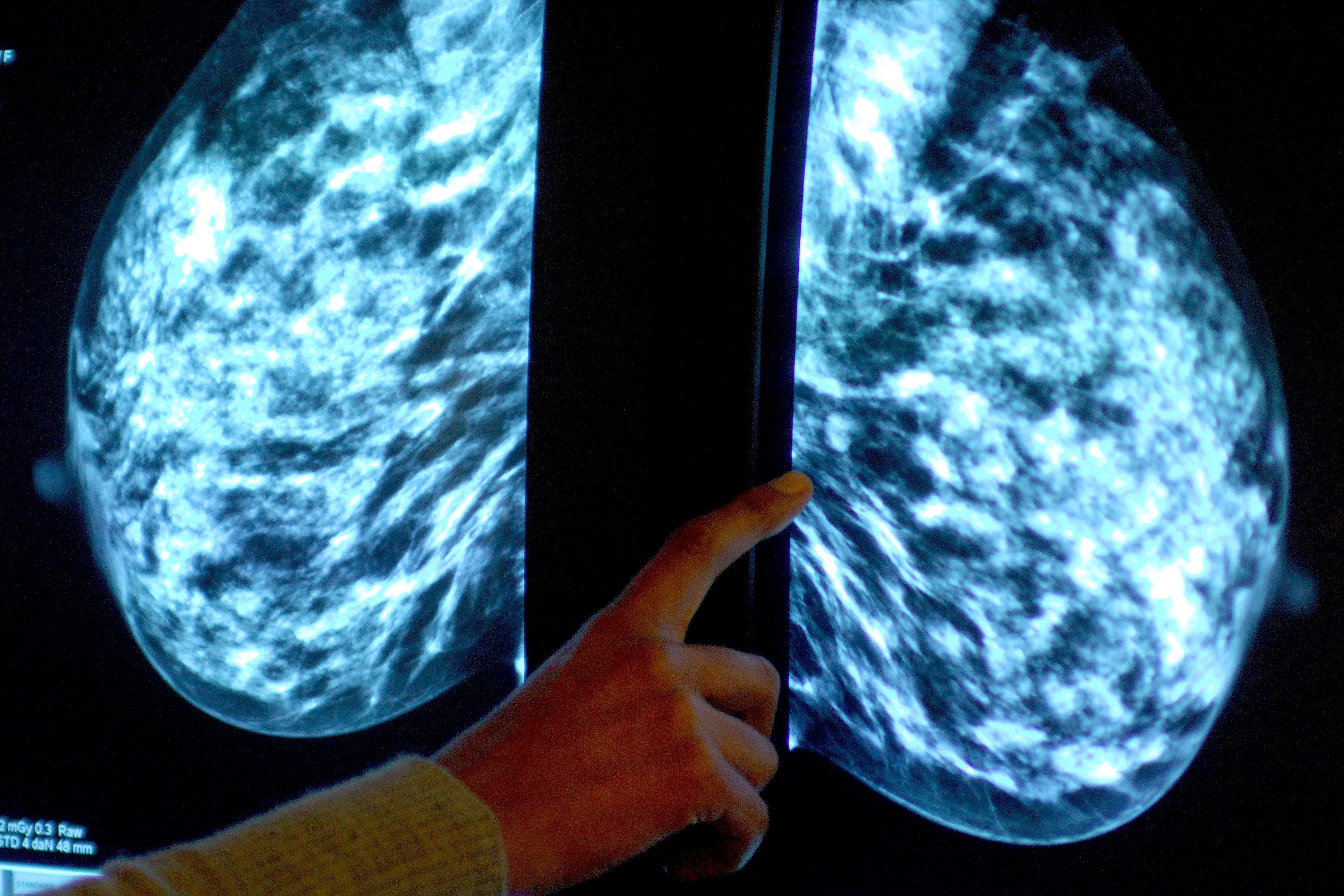Health watchdog backs wider use of breast cancer tumour profiling tests
The tests can help medics and patients decide whether chemotherapy is really needed to prevent cancer coming back.

More people with breast cancer could be spared chemotherapy after a health watchdog recommended the wider use of tumour profiling tests.
The tests, which provide information on the genetic makeup of breast cancer tumours, can help medics and patients decide whether chemotherapy is really needed to prevent cancer coming back.
The National Institute for Health and Care Excellence (Nice) backed the wider use of three tumour profiling tests (EndoPredict, Prosigna, and Oncotype DX) by the NHS.
Choosing whether to have chemotherapy is a tough decision to make when you don’t have all the information available to you. A test that can help to predict the risk of the breast cancer spreading should be considered as a significant step forward for patients
These can guide the treatment of women who have been through the menopause, and men, with oestrogen receptor (ER) or progesterone receptor (PR)-positive, human epidermal growth factor receptor 2 (HER2)-negative early breast cancer with one to three positive lymph nodes.
The test results, which are returned in days, help predict the risk of cancer returning after surgery when combined with other factors such as tumour size.
If tumour profiling test results suggest a low risk of cancer recurrence, patients may opt not to have chemotherapy, which can have harsh side-effects.
Mark Chapman, interim director of the health technologies programme at Nice, said: “Choosing whether to have chemotherapy is a tough decision to make when you don’t have all the information available to you.
Our committee heard compelling patient testimony which outlined the significant emotional and psychological strain of having to make this decision
“A test that can help to predict the risk of the breast cancer spreading should be considered as a significant step forward for patients.
“Our committee heard compelling patient testimony which outlined the significant emotional and psychological strain of having to make this decision.
“Having chemotherapy will be the right choice for some, but for others they will not have to face the side-effects which come with the treatment.”
Tumour profiling tests are already recommended for guiding chemotherapy decisions in people with oestrogen receptor ER-positive, HER2-negative, lymph-node negative early breast cancer.
(Oncotype DX) reduces significantly the cost of treatment so that NHS resources can be redistributed to other medical priorities
But figures suggest an extra 3,000 patients or more could benefit from an expansion in testing.
Professor Simon Holt, from Swansea University and Prince Philip Hospital in Wales, said the use of Oncotype DX in particular “will reduce suffering and inconvenience” by sparing up to 85% of eligible people unnecessary chemotherapy.
“It also reduces significantly the cost of treatment so that NHS resources can be redistributed to other medical priorities,” he said, adding that using the test gave clinicians and their patients “much greater confidence in their chemotherapy decisions”.
Bookmark popover
Removed from bookmarks